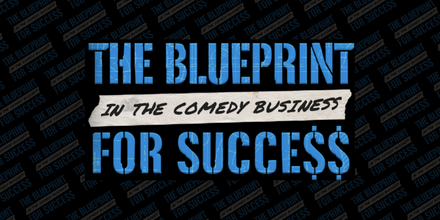In an epic battle, appropriate for a (fairly) large-price range YouTube video, an navy of effective but faltering giants faces off against a small however nimble band of rebels seeking to relaxed their independence.
Instead of a trailer for a new fable collection, that is a decent description of the kingdom of the music enterprise. Big report companies swing snares inside the form of more and more fashionable "360 offers," while unsigned artists who price their inventive and monetary independence try and pass their own manner by using building an instantaneous connection to their fans and supporters. One such connection gaining in recognition is Patreon.
Patreon, which become founded in 2013, is a crowdfunding platform. Unlike Kickstarter or GoFundMe, however, Patreon is not set up to fundraise for a one-time lump sum. Instead, the idea is that fans (or "purchasers") enroll in aid a specific artist’s work through the years. While Patreon is so far most popular with artists who run YouTube channels, it is also utilized by other musicians, podcast creators and webcomic artists.
Musician Nataly Dawn, who is half of of the band Pomplamoose in addition to operating as a solo performer, became an early and vocal supporter. (Her collaborator Jack Conte is Patreon’s co-founder and CEO, though Dawn located in a current interview he has no longer been taking a income in that position, as a substitute incomes his dwelling from his song through Patreon and someplace else. (1)) She has also lamented the destiny of artists with labels who aren’t able to make a dwelling after the label takes their cut of their profits. And whilst a few of the artists on Patreon have area of interest followings, some bigger artists have moved to the website, along with a cappella group Pentatonix and singer-songwriter Amanda Palmer.
For a younger artist, a 360 deal just like the one Dawn criticized represents the alternative stop of the spectrum from Patreon. Such offers have been round for years now, however have become increasingly dominant. An set up record label has capital, connections, a logo call and get right of entry to to different huge organizations, including those specializing in excursion control, ticketing or track video manufacturing. The label offers to use these assets to make an artist famous; in change, the label will take a cut of the whole thing from excursion revenue to merchandise to endorsement offers. Instead of sincerely selling the artist’s records, the label inserts itself into each part of an artist’s sales stream.
On the other give up of the scale, creators working mostly on their own take duty for growing their non-public brand, handing over their product to fans (whether or not films, songs or different pieces of art), and constructing an immediate relationship with an audience. This direct artist-audience connection exists today in a shape that has only been possible for the remaining decade or so, and it’s miles what fuels a model like Patreon. While Patreon does take a five percent cut of pledges, it does now not contact sales from any other resources.
The implications of Patreon’s model amplify beyond music, and indeed musicians are not the most effective, or maybe the dominant, institution to flock to the web page. Filmmakers, in particular the ones inquisitive about the short movie, were formerly confined to audiences in particular at universities and movie fairs, however now have the method to reach any fascinated viewer with a sufficiently speedy Internet connection. Podcasters, whose platform exploded in popularity with ultimate 12 months’s "Serial," have lengthy relied on voluntary listener donations; they now have a new option for structuring that earnings. Investigative newshounds who make a name for themselves have an choice to garner help for a venture free of some of the pressures that come from running with a traditional booklet. Opinion writers can be capable of draw on their audiences too. Fiction authors might even avail themselves, suggesting the capability return of the serialized narrative in a much large way. Some of the artists on Patreon already provide creations in greater than one of these forms.
The idea of artists assisting themselves without middlemen which includes publishers or document labels isn’t new, and it did no longer originate with Patreon. But Patreon offers a tremendously centralized manner for a patron to assist a menu of creators, and in that, it is an thrilling improvement. It’s a fantastically new corporation, however as of March, its Google seek visitors had roughly doubled during the last yr, suggesting there is a market for what Billboard called "an online tip jar." (2)
Not lengthy in the past, I talked to an experienced song enterprise government. I asked her why any artist in recent times might sign a 360 deal. She informed me that the artists who do frequently experience they lack options, and see such offers as the handiest manner to get distribution at the radio and cable TV channels that sell song. This might also nevertheless be actual; these distribution channels are nevertheless a huge lever for classic labels.
But the trends are quite clean. Once upon a time, radio play offered facts. These days, tune income are not the primary sales supply for maximum artists. Artists make some money from streaming offerings including Spotify, but usually now not tons. Instead, maximum in their sales comes from price tag income, products and advertising and marketing – considerably commercials on YouTube movies. All of these avenues rely upon the artist’s private reputation with lovers. While labels do have the sources to help growth this reputation thru publicity, publicity by myself isn’t sufficient.
Popularity nowadays is often built on direct non-public engagement. Taylor Swift had a document deal early in her career, but she would by no means have grow to be the phenomenon she is without her non-public circulate of tweets, posts and likes. This summer season, Swift made waves by means of sending heartfelt responses to fans tagging her on Instagram. Through this engagement, her lovers have come to love her as someone as an awful lot as an artist. No label ought to have carried out that for her. An artist arising today, hoping to be the subsequent Taylor Swift, might have less incentive to spend time and strength on this kind of goodwill-constructing with a 360 deal in place.
But much more than for the Taylor Swifts of the world, Patreon and similar investment mechanisms are for abilties who’ve not already damaged into the broader cultural communique. Patreon might also permit lesser-known abilties, who may also have only cultivated a spot target market, to assemble that audience on a huge enough scale to help themselves and their paintings.
Of direction the truth that they may be self-sustaining in theory does not suggest that each artist may be in reality. Convincing sufficient of their fanatics to end up paying buyers will probable be a warfare for newer and smaller artists. A brief browse via Patreon users shows that for each challenge producing hundreds of greenbacks in line with video, many others are making extra like $forty or $50. While that is nonetheless extra than many artists make on YouTube advert sales alone, it is no longer sufficient for most artists to cease their day jobs. Patreon’s repeating subscriptions also can be installation on a in step with month or a consistent with introduction foundation. If a YouTuber is installation on the latter model and the lease is coming due, there’s a temptation to push out subpar content in a rush. The penalty is built in, but: Do this regularly, and you’ll lose your subscribers.
At the cease of the day, what separates the Davids of Patreon from the Goliaths of the record labels is what their commercial enterprise fashions produce. The Goliaths, who can constantly locate every other megastar-in-the-making to sell, make their cash from content material that, in lots of cases, could have been created anyway. The Davids, with the help of their customers, are including substantially to our pool of cultural wealth.
Sources:
1) Calling All Creators, "21 – Nataly Dawn"
2) Billboard, "Two Years In, Patreon’s Update of the Crowdfunding Model Seems to Be Working"

